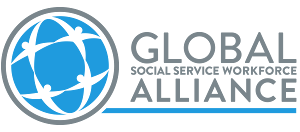Domain:
Organizations / Agencies / Standards and networks related to Family Therapy. Occupational Therapy, Family Educators and Family Support Paraprofessionals
Organization's Role:
Education, Methodological Coordination & Supervision, Research, Other
Skills (if listed on the website):
-Non-verbal and verbal culturally and ethically competent
-Basic listening and responding skills
-Child friendly communication
-Building rapport
-Engagement
-Needs, problems and strengths assessment
-Education
-Recording and documentation
-Referral
-Supportive counseling
- Empathetic listening and nonjudgmentalcommunication skills
-Guidance and information in access to services
-Planning
-Monitoring
-Provision of practical advice regarding parents needs
-Advocacy
-Action planning
-Group facilitation
-Leadership
- Identifying and accessing services
-Mobilization of communalities and resources
-Team work in multidisciplinary environment
-Mentoring
-Advocacy

